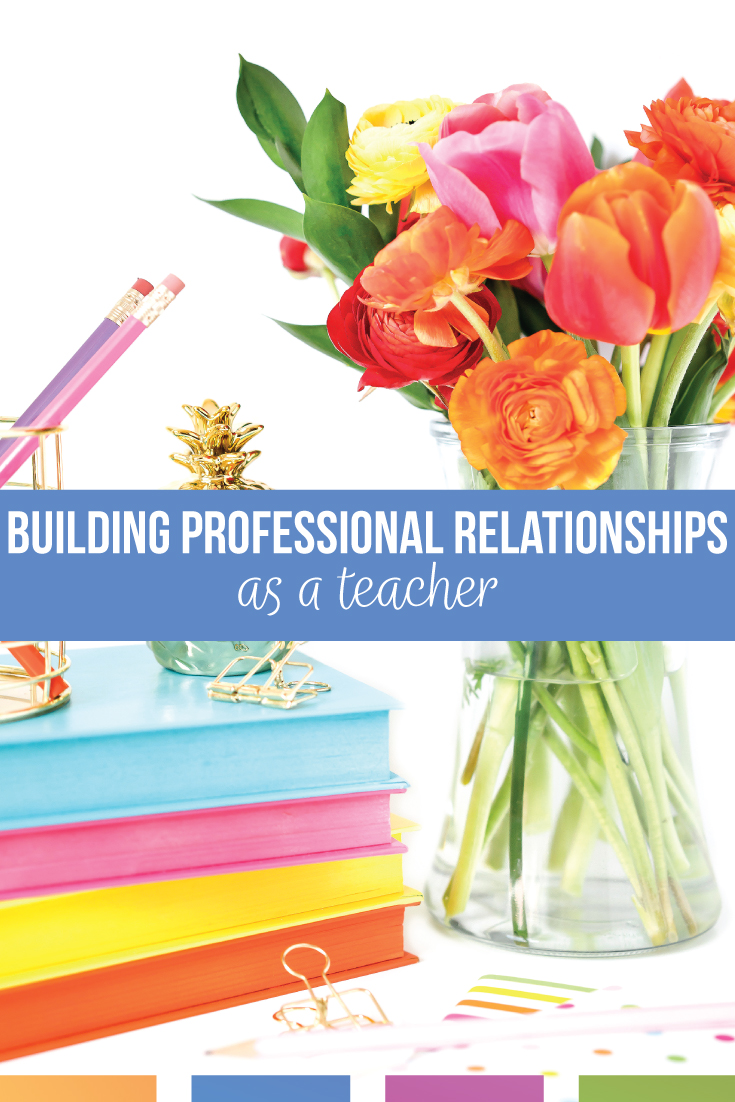Building professional relationships within schools? Your teaching coworkers are an important piece of your success in a school building.
I’ve blogged for years about my ideas—always with the caveat that these blog posts are my ideas—what I’ve learned and what works for me. This post is no different, but for some reason, I have reread it more than I do others.
Building professional relationships: what if other teachers think I’m way off base? What is my process is a “given” and people wonder why bothered with such simple concepts? Stepping into the leadership part of education is not one of my normal blog posts.
But! I hope this list helps: four ways for building professional relationships as a teacher.
Know your community
Knowing your community that you teach in and the community you work in matters. As you work with coworkers, you will have a goal: to educate your students. Doing that requires that you understand your community of learners.
After you understand your student population, then you can relate to coworkers and develop systems that will help your learners. When you are on committees or in meetings, it helps to approach new ideas with the community mindset. Is this part of our community? Is this how my community functions? Do we, as educational professionals, work this way to benefit our larger community? (If no, that is a different blog post.)
Understanding the community you are in is an important step in building professional relationships.
Have a giving mindset
At my first job, my department chair emailed me her English 9 lesson plans before the school year started. I found that gesture and those blueprints invaluable. I didn’t use them exactly as she had them, but the pacing guided me for the entire year.
I’ve been fortunate; I’ve never worked with a department in which people would not share. I freely share my activities and ideas too. My students get a better experience than if I did not. My professional vision improves.
Everyone wins, and this gesture helps in building professional relationships.
Collaborate and listen*
Teaching in isolation limits what teachers know and therefore limits what students experience. Last Friday, a coworker and I discussed classroom libraries. We brainstormed tracking systems, apps, philosophies, and storage. Sure, I’ve seen ideas on Instagram and share them too. Standing in front of my books with a colleague… it’s a different experience.
Collaborating online helps me immensely. However, listening to other ideas from someone who knows your school’s culture and student population may help you focus your attention.

Avoid gossip
The largest tip for building professional relationships at a school may be the most difficult. Where you work matters. The culture matters, and the way teachers treat each other matters.
I will admit this once was my worst habit. Gossip let me blow off steam after a stressful day. Plus, if I’m honest, it is massively difficult to work with teachers whose philosophies differ greatly from yours. It is super easy to fall into a trap of gossiping.
Here’s what I eventually realized: gossiping is a trap. Other people expect you to participate all the time. This dynamic creates negativity and a distracted work environment.
No one is perfect! (I’m waving my hand.) However, avoiding gossip gathering places improves my mood and helps in building professional relationships.
Those four ideas are my foundations to building professional relationships within a school building. If you are looking for more ideas, check out Reading and Writing Haven’s post.
*Yes, I can rap. No, it is not good.

